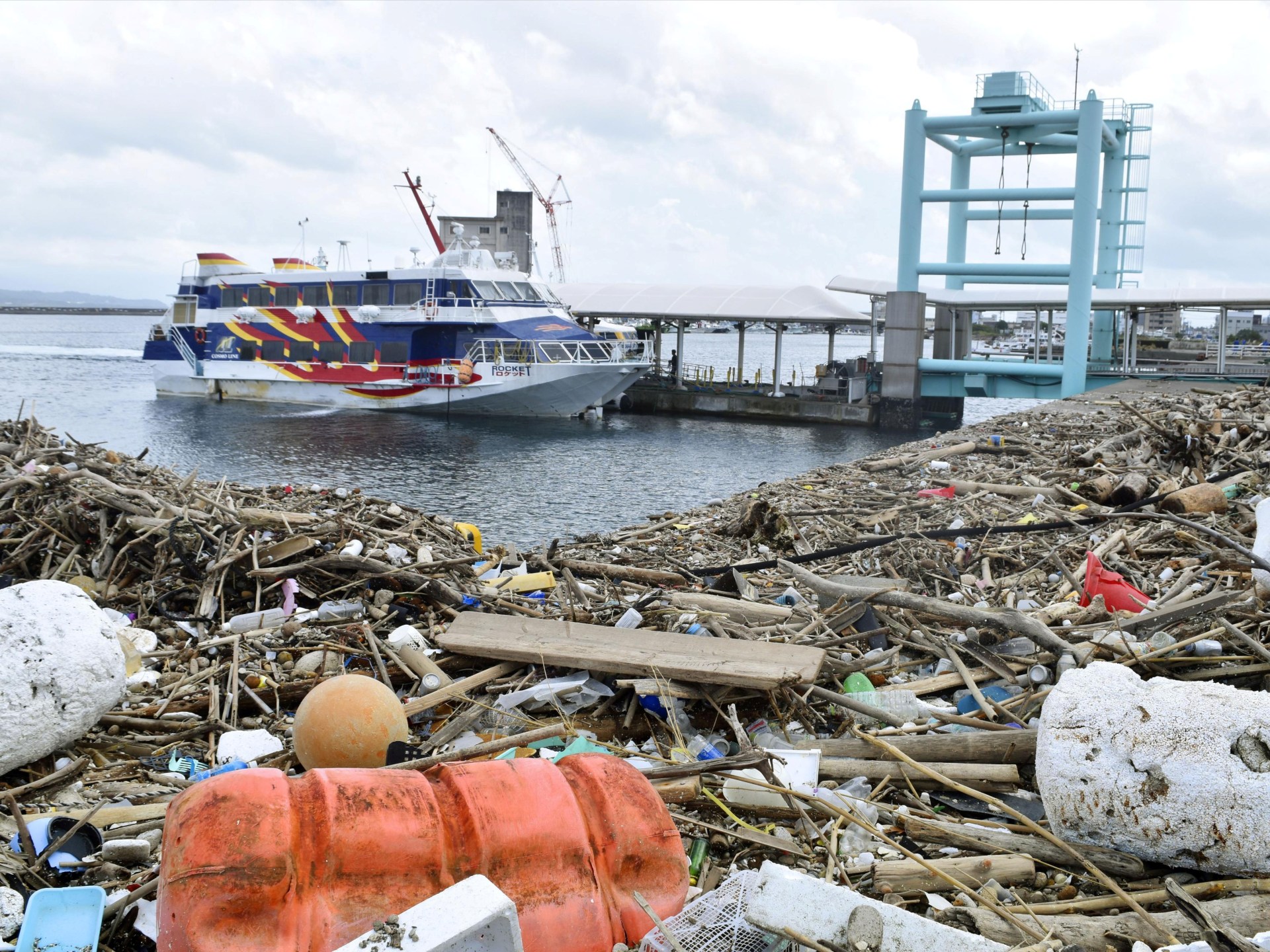The Japan Meteorological Agency issued an exceptional warning Saturday for Kagoshima Prefecture, on Japan's southernmost island of Kyushu, as the region awaited the arrival of a powerful and potentially destructive typhoon.
The warning came after the agency urged thousands of citizens earlier today to evacuate parts of the southern island of Kyushu ahead of the arrival of Typhoon Nanmadol, which is expected to bring more than half a meter of rain when it makes landfall on Sunday.
The US Navy's Joint Typhoon Warning Center classified Typhoon Nanmadol as a strong typhoon, likely to be the most destructive tropical storm in Japan in decades.
According to the center, the 14th typhoon of this season approached the island of Minami-Daito (southern Japan), heading to the northwest at a speed of 20 kilometers per hour on Saturday afternoon, and the winds accompanying it reached 198 kilometers per hour, and may reach 270 kilometers per hour.
The agency's official, Ryota Korura, said - in a televised press conference - that the area is likely to experience storms and rain in an "unprecedented manner", urging residents to evacuate before dark.
"The winds will be so strong that some houses will collapse," Korora told reporters, warning of floods and landslides.
Rescue teams are trying to search for survivors amid debris caused by an earlier typhoon in Japan (Getty)
A level of 500 mm of rain may fall on Kyushu on Sunday, while the Tokai region (central country) may see a rainfall of up to 300 mm.
Local media reported that the exceptional typhoon warning was the first of its kind for a province north of the Okinawa chain of islands.
Kyushu Railway Corporation began suspending some train lines on Saturday, before a wider suspension of its flights on Sunday.
NHK reported that hundreds of weekend flights were canceled in the southern region, causing confusion among passengers traveling during the long weekend.
In 2019, typhoon "Hagibis" hit Japan while it was hosting the Rugby World Cup and claimed more than 100 lives.
A year ago, Typhoon Jebi closed the Kansai Airport in Osaka and killed 14 people.
Scientists point out that climate change leads to an increase in the intensity of storms, temperatures, floods and droughts.

